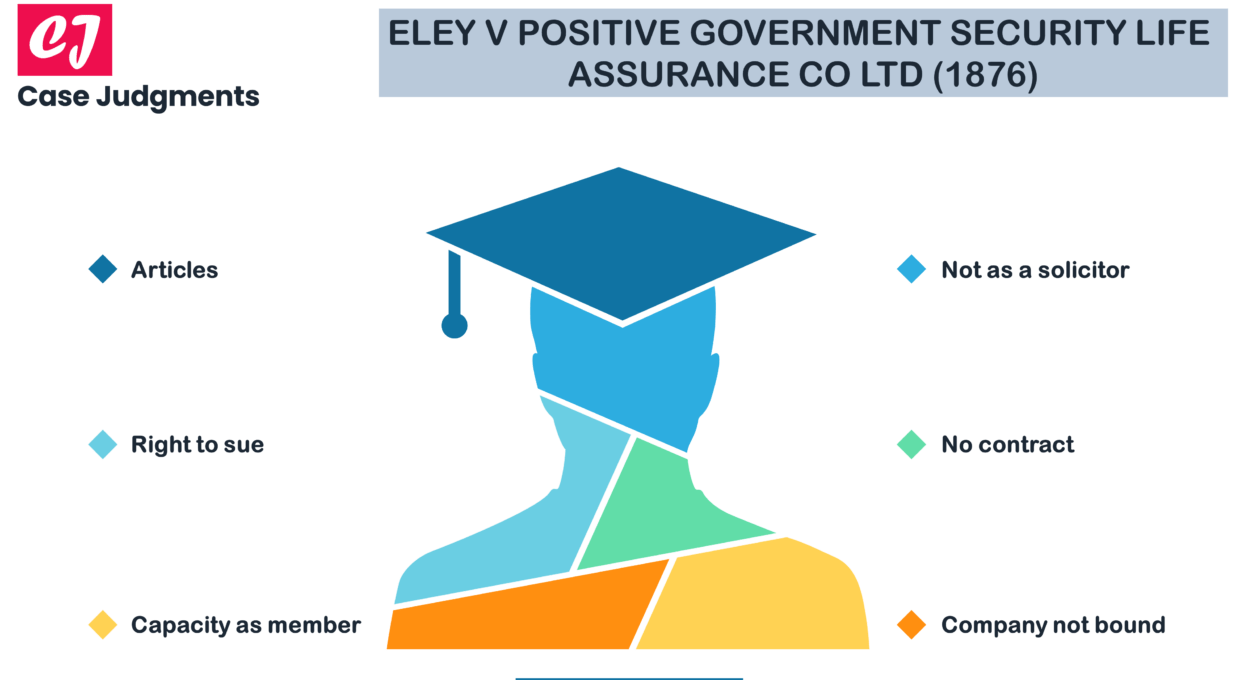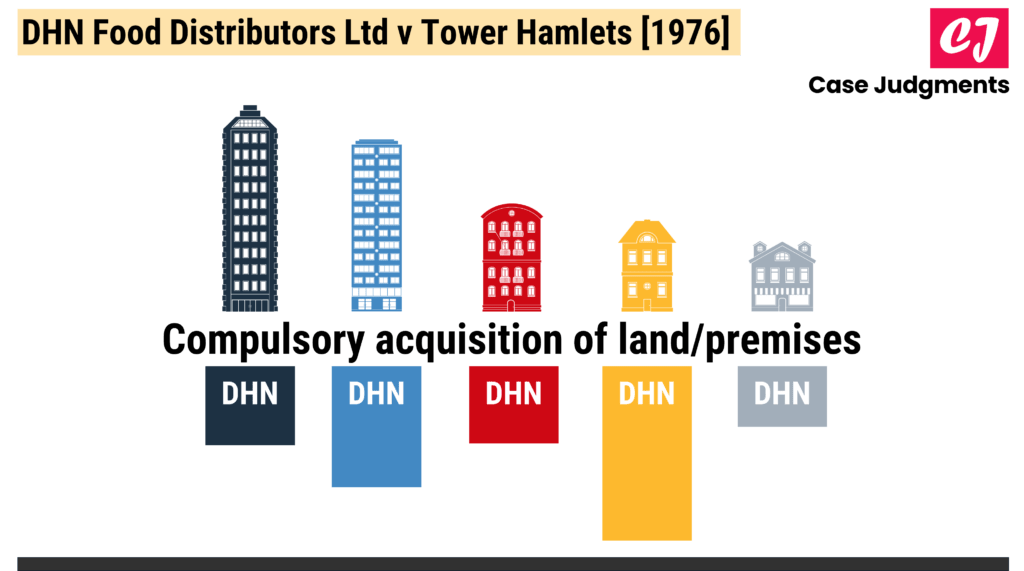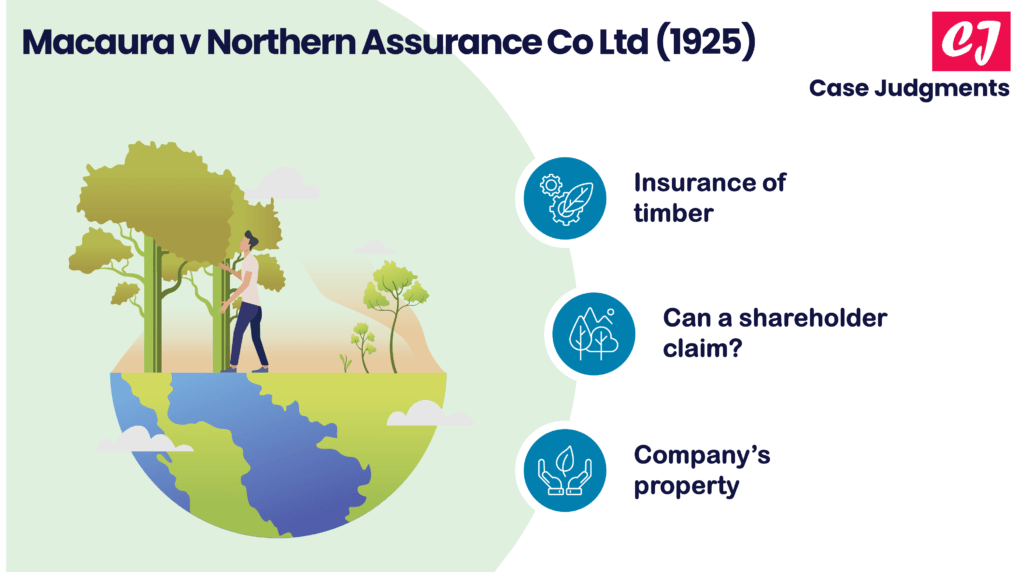
Eley v Positive Government Security Life Assurance Co Ltd (1876)
Eley v Positive Government Security Life Assurance Co Ltd (1876) is a UK company law case that dealt with the point that a company, by its articles, is not bound to outsiders.
| Case name: | Eley v Positive Government Security Life Assurance Co Ltd |
| Case citation: | (1876) 1 Ex D 88 |
| Court: | Court of Appeal |
| Jurisdiction: | England and Wales |
| Date/year: | 1876 |
| The bench of judges: | Lord Cairns LC, Lord Coleridge CJ and Mellish LJ |
| Area of law: | Constitution of a company; Articles of Association |
Facts of the case (Eley v Positive Government Security Life Assurance)
In the given case, there was a provision in the company’s Articles of Association that stated Eley would serve as the company’s solicitor for life and could not be removed from office for any reason other than misconduct. Eley served as the solicitor of the company and also became a member of it over the course of the period. However, his employment with the company was terminated. Following this, he sued the company for damages, claiming that it had violated the terms of the contract.
Issue
Could Eley succeed in his claim? Did he have a contractual right to act as the company’s solicitor?
Judgment of the Court in Eley v Positive Government Security Life Assurance Co Ltd
The Court held that the Articles cannot serve as the basis for a contract between the company and an outsider. Only a member can enforce rights under the Articles.
In this case, it is important to keep in mind that Eley was attempting to exercise his right as an employee of the company, not as a member. He was suing the company in his capacity as a solicitor. A person can be both a member of the company and a creditor or employee of the company at the same time.
When the company was first formed, he did not purchase any shares in it. After that, however, he had taken shares and become a member of the company; but this fact was not brought up in the judgments of the Court of Appeal.
Therefore, apart from what was stipulated in the Articles, there was no independent contract between the company and Eley. Consequently, his lawsuit was dismissed.
The reasoning behind the decision
Because the Articles of Association do not constitute a contract between the company and the outsiders, the outsiders cannot sue the company. An outsider is not permitted to use the articles as legal grounds to sue the company for violating a right that is conferred upon him by the articles. Even if the proposed business makes reference to a third party in the Articles of Association, the company is in no way obligated to comply with the terms of that reference.
List of references:
- https://www.hzu.edu.in/uploads/2020/10/business-law.pdf
- https://nou.edu.ng/coursewarecontent/Law533%20CompanyLawandBusinessAssociation%20I.pdf
- http://repository.out.ac.tz/1645/1/Company_Law_2nd_edn..pdf
You might also like:
More from corporate law:

